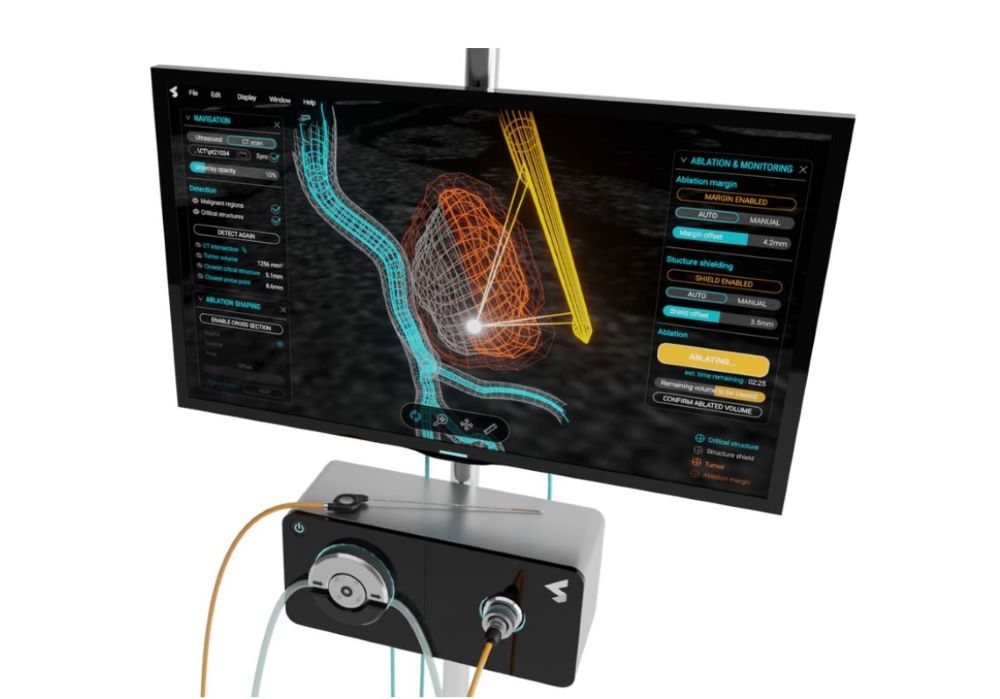For DC founder Al Mashal, an electrical engineer who worked in oncology, and cofounder and CTO Chris Wagner (who came from surgical robotics), creating a startup to improve cancer treatment seemed like something they were meant to do.
“When we started the company, in some ways, it was inevitable to us because we just saw this huge gap in a lot of diseases — particularly cancer,” Mashal told Technical.ly.
In 2020, that inevitable idea turned into Current Surgical, a medtech startup designing a tech-guided needle to remove cancerous tumors. The company, which works out of the JLabs space in DC, just raised $3.2 million in a seed round led by True Ventures. The 1517 Fund and SciFoundes also participated. In total, the company has raised $4 million to date, including a Small Business Innovation Research grant from the National Science Foundation.
Currently, Mashal said, patients diagnosed with cancer are mostly left to choose between two treatment options: chemotherapy and surgery to remove the tumor. Surgery, though, is sometimes not even an option if the tumor is in a hard-to-reach place and the procedure would be too invasive. So the Current Surgical team is developing a needle-based technology where doctors only have to position a needle and then — through a process called thermal ablation — sensors in the needle will deliver energy to the tumor, destroying it.
“You’re effectively cooking the tumor and because we can do it with sensors and software controls, to do that effectively and in a closed loop away, or in a way that’s automated, the hope is to allow doctors to be able to destroy just the tumor and the margins they want, but not damage anything nearby,” Mashal said.
The needle technology is based on a new class of ultrasound tech, according to Mashal, that is microsized. The micromachine electromechanical sensors allow doctors to see better than they could with the traditional ultrasound tech.
“It’s a concept very similar to, if you have a magnifying lens, you can point and shoot and you can just heat one tiny spot,” Mashal said. “Then, because it’s all electronically done, we can kind of sweep that around the region of interest.”

With the funds, the Current Surgical team primarily wants to work on reducing the size of its technology to fit into a needle. They’re also looking to hire six-to-eight new team members by the end of the year — specifically electrical mechanical engineers and deep learning engineers.
In the longer term, Mashal and Wagner want to apply the tech to all solid tumors, and then some. There are a number of issues, including epilepsy, hypertension and chronic pain, where precisely destroying a small volume of tissue could be useful, according to Mashal.
But before then, he wants to make tumor removal a much easier process for patients.
“We want to change the dynamic to something like going to the dentist’s office, where you don’t love having a cavity but at the same time it’s not life-threatening,” Mashal said.







